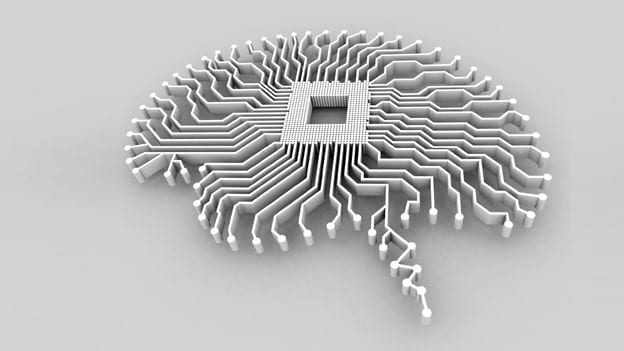The power and possibilities of AI in talent management

Talent management lies at the cusp of human and machine intervention in today’s digital age. The future of HR lies in the power of digitalization, and for this HR and business leaders must understand and assimilate the latest emerging technologies. Many technologies look promising, from an efficiency and effectiveness perspective. One such technology which is finding wide applications in numerous areas of HR, is AI or Machine Learning. AI offers the opportunity to outsource mundane, run-of-the-mill tasks to machines, while retaining the more value-adding work for human workers. This is the single largest advantage of AI applications to talent management i.e. streamlining HR processes to deliver outcomes fast and accurately.
What is AI?
The concept of AI emerges from a computer’s ability to think for itself and make decisions based on the data it is being fed. It relies on the technologies of machine learning and deep learning, by which machine when fed with data, is able to make sense of the data and continuously learn to perform tasks.
AI as a talent management necessity
AI is no longer relegated to sci-fi movies, it is real and happening in the actual world. We see so many customized “shopping recommendations” being thrown at us as we browse the web, or we have a pop-up chatbot assistant helping us with our travel bookings. Each of these AI interventions are changing the user experience, bringing in a high degree of personalization. As users get used to this savvy experience in their personal lives, they expect the same convenience and customization at their workplace. Naturally, HR leaders must up the game and apply AI to improve not only the employee experience but also productivity. Here are some areas that HR must explore to bring AI to life in organizations:
-
Talent acquisition: AI tools are fast assisting recruiters in high-volume, mundane activities such as screening of resumes, CV selection based on Natural Language Processing (NLP), candidate-engagement through chatbots.
-
Learning and Development: Employees want to learn at the “point of need” to help them resolve work-problems when they actually need them. Hence personalized learning recommendations are a must to engage new workforce such as millennials. AI helps analyze current skillsets, career aspirations, learning needs by parsing various employee interactions, thereby recommending learning nuggets when an employee most needs them. Whether it is leadership coaching or upskilling, AI will help build employee ownership in learning. The modern Learning Experience Platform will be far more intelligent than the current LMS.
-
Performance and Engagement: AI is being used to understand employees sentiments by analyzing their interactions on workplace forums such as the intranet, email, etc. Voice of the Employee (VoE) shows potential to infer their preferences, opinions, and well-being. This finds application in performance management systems as well by allowing detailed feedback on individual and team performance. HR must design Worker Engagement Platforms to provide positive interactions at work. AI-led virtual assistants in the form of text, voice or even avatars would also help HR professionals better predict outcomes related to attrition, mobility, and other workforce matters.
-
Career progression: AI systems will interlink PMS, Learning platforms and Workforce Planning modules, making for better succession planning and career pathing for horizontal as well as vertical growth. Employees would be more empowered and would be able to take on more ownership for their career advancement.
-
Rewards: Customization in rewards is the way ahead, and AI can help employees select from a bucket of rewards as per their life stage, aspirations, financial situation and other factors.
These are only some of the HR applications of AI, and as AI algorithms get smarter, the AI potential is only set to increase.
How to bring AI to life?
AI expertise begins with data, which forms the core of an AI algorithm. HR must build the following capabilities:
-
Data Organization: Organizations have vast amounts of data, but may not know what data lies where. Assimilating and organizing data to ensure the right data feeds is the beginning step in building AI capability.
-
Analytics: Making sense of available data is critical to get real-time insights for employees. Data scientists and data experts may need to be hired or existing people upskilled to put in place the right analytics tools and platforms.
-
Usability and experience: AI interventions must be designed to deliver a balance between human touch, and machine interaction. A clumsy machine-interaction can do more harm than good, and AI systems must be intuitive, easy to use and adopt, and continuously evolve to provide an authentic user experience.
-
Fairness and bias: The design of AI tools must elicit trust amongst employees. HR must ensure the tenets of fairness, non-bias, privacy, and confidentiality, security, etc. to ensure a safe and engaging environment for its people. In fact, there is a movement in AI to make AI systems “explainable”, which means that if AI designers and HR professionals understand why a prediction was made in the first place, more intelligent action can be taken.
While AI has much power and potential to transform talent management, it is important to walk the thin line between man and machine. In a bid to mechanize tasks and interactions, HR must not forget to connect and converse, human-to-human. Amidst all the talk about AI leading to job losses, AI presents an opportunity to offer human workers more meaningful work, by outsourcing mundane tasks to machines. Thus, the association of man and machine can usher in a whole new era of talent management, driven by hardcore data-made decisions.

















